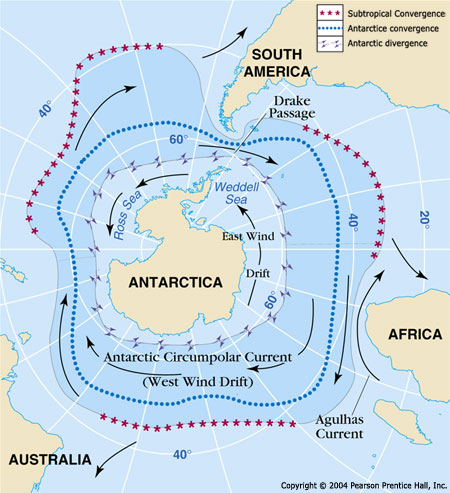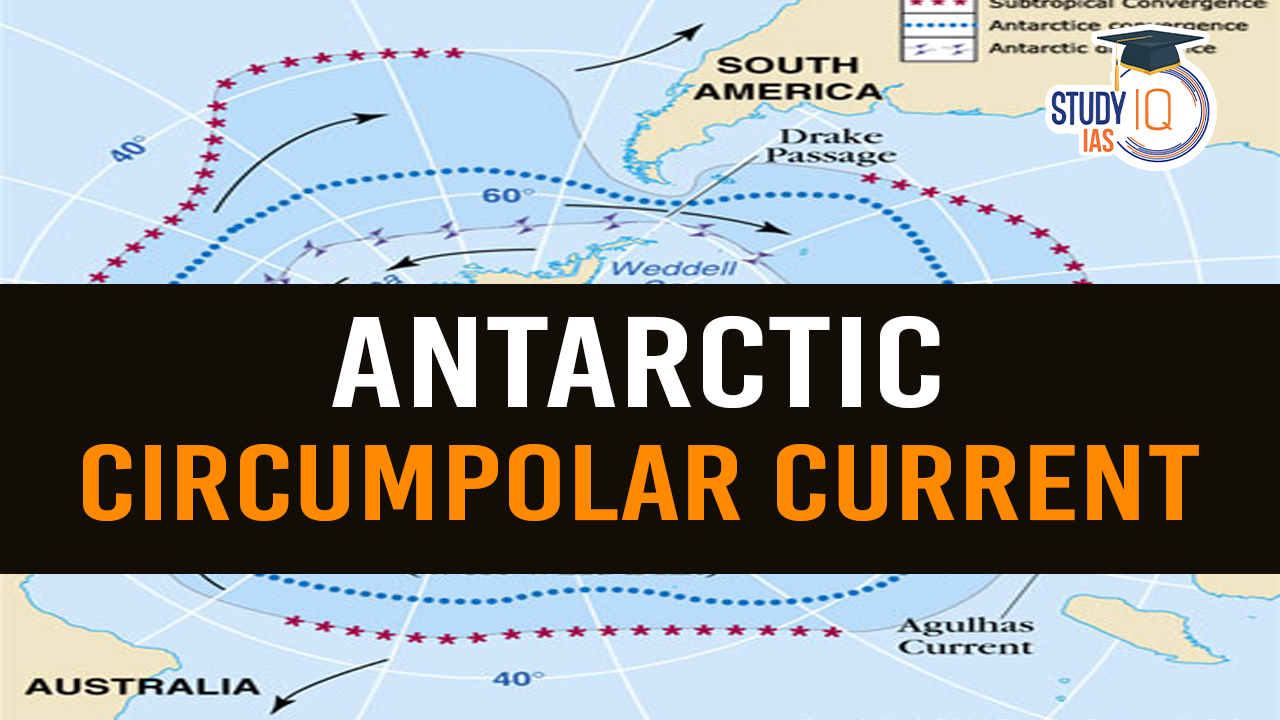Table of Contents
Context: A study by the University of Melbourne has predicted that the ACC may weaken by 20% by 2050 under a high carbon emissions scenario.
About Antarctic Circumpolar Current (ACC)
- It is the world’s strongest ocean current, moving in a clockwise direction around Antarctica.
- It connects the Atlantic, Indian, and Pacific Oceans.
- It is four times stronger than the Gulf Stream, transporting about 165 million cubic meters of water per second.

Significance
- Regulates heat and carbon dioxide uptake in the ocean.
- Prevents warmer waters from reaching Antarctica, thus preserving ice sheets.
- Blocks invasive species (e.g., bull kelp, shrimp, mollusks) from other continents reaching Antarctica.
| Reasons for weakening of ACC |
|
Potential Impacts of a Weaker ACC
More Extreme Weather & Climate Instability
- ACC influences global wind and weather patterns.
- A weaker ACC can lead to stronger storms, heat waves, and extreme climate events
Increased Global Warming
- The ocean absorbs about 90% of the excess heat trapped by greenhouse gases.
- If the ACC weakens, the ocean’s ability to absorb heat and carbon dioxide declines, accelerating global warming.
Rising Sea Levels & Ice Sheet Melting
- The ACC prevents warm waters from reaching Antarctica.
- If it weakens, warmer ocean currents will erode Antarctic ice shelves, leading to faster sea level rise.
Disruption of Ocean Circulation
- The ACC is connected to global ocean currents, including the Atlantic Meridional Overturning Circulation (AMOC).
- A slowdown can weaken major ocean currents, disrupting rainfall, monsoons, and agricultural patterns.


 Important Lakes of India, State wise and...
Important Lakes of India, State wise and...
 Places in News for UPSC 2025 for Prelims...
Places in News for UPSC 2025 for Prelims...
 Why Naini Lake is Shrinking?
Why Naini Lake is Shrinking?





















